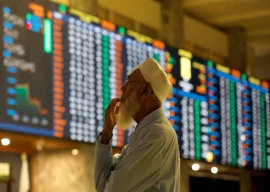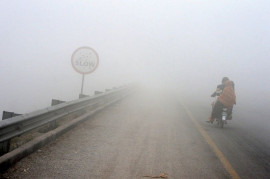
“The facility is undergoing commissioning activities and we hope to be entering the trial production phase shortly,” said Engro Fertiliser Limited Chief Financial Officer Naz Khan while talking to The Express Tribune.
The plant, which has the capacity to produce 1.3 million tons of urea, was initially scheduled to start production in October but the project hit delays which the CFO partially attributes to the recent floods.
Currently Engro Fertilisers Limited, a wholly-owned subsidiary of Engro Corporation, holds about 25 per cent of the di-ammonium phosphate (DAP) market and 16 per cent of the urea market.
“The new plant will help propel our share to about 31 per cent of the urea market and consequently there will be no need to import, unless we see a continuation of gas curtailment,” said Khan.
Once the said plant starts production, along with the newly set-up Fatima Fertiliser – which boasts a capacity of 500,000 tons, demand is likely to be met through local production.
The total demand for urea in the country stood at about 6.4 million tons last year while local production was only about 5.2 million tons. The shortfall had to be met through imports.
Curtailment and subsidies
“It is criminal to be importing expensive fertilisers when we have the capacity available to manufacture domestically,” asserted the financial head of the company’s fertiliser business. She pointed out that although gas curtailment was supposed to end by the beginning of August, it was still continuing.
Natural gas is used not only for power generation in fertiliser plants but also as a key ingredient in the manufacturing of urea. “Gas curtailment has limited the production of urea domestically and could result in demand exceeding local supply this year.”
The company’s base plant receives gas supply from the Mari field while the new facility will be linked to Qadirpur gas field from the Sui network. “The former is receiving six to seven per cent less gas while fertiliser plants on the Sui network are currently undergoing curtailment of about 20 per cent,” she asserted.
The financial head reiterated the demand that supply of gas to fertiliser companies should be given priority over the power sector. “Energy companies have the alternative of using furnace oil to produce power, but fertiliser cannot be made without gas.”
The current delivered price of imported urea is approximately Rs2,000 a bag compared with the domestic price of Rs830 per bag.
At present, the government has kept the price of fertiliser low by subsidising the gas used as feedstock. But manufacturers have been lobbying for the elimination of this subsidy.
“Farmer incomes have grown manifold due to the surging prices of commodities,” claimed Khan. “If the subsidy is removed and fertiliser prices climb 30 or 35 per cent, farmers can afford it since their incomes have surged by a much higher proportion over the past few years.”
She added that the feed gas subsidy was only Rs325 per bag while the remaining Rs850 a bag differential from international prices was the benefit that the fertiliser manufacturers were passing on to the farmers.
“Demand fell by 15 per cent in August and was only marginally better in September,” she cited while explaining that the primary impact of floods was witnessed during the Kharif season. “But demand has rebounded very strongly since then,” added Naz, although she was quick to admit that at least part of this may have been spurred by the expectation of implementation of reformed general sales tax (RGST).
She also observed that the implementation of RGST could drive up the prices of fertiliser which would in turn have a broad-based effect on commodity prices.
Published in The Express Tribune, December 23rd, 2010.





1734951821-0/Copy-of-Untitled-(88)1734951821-0-270x192.webp)

1734899716-0/image-(15)1734899716-0-270x192.webp)








1734778885-0/Untitled-(10)1734778885-0-270x192.webp)






COMMENTS (1)
Comments are moderated and generally will be posted if they are on-topic and not abusive.
For more information, please see our Comments FAQ